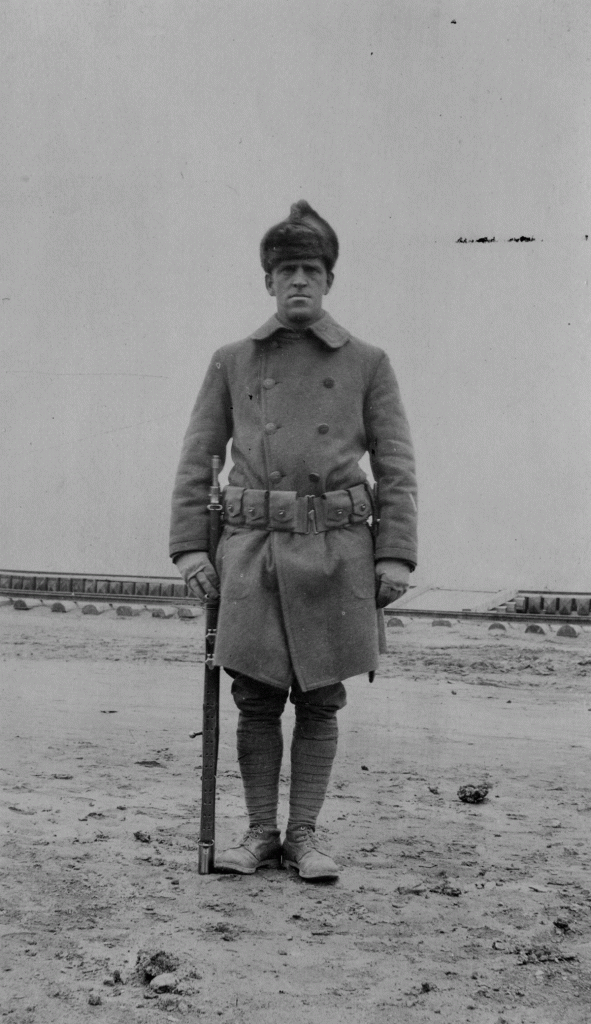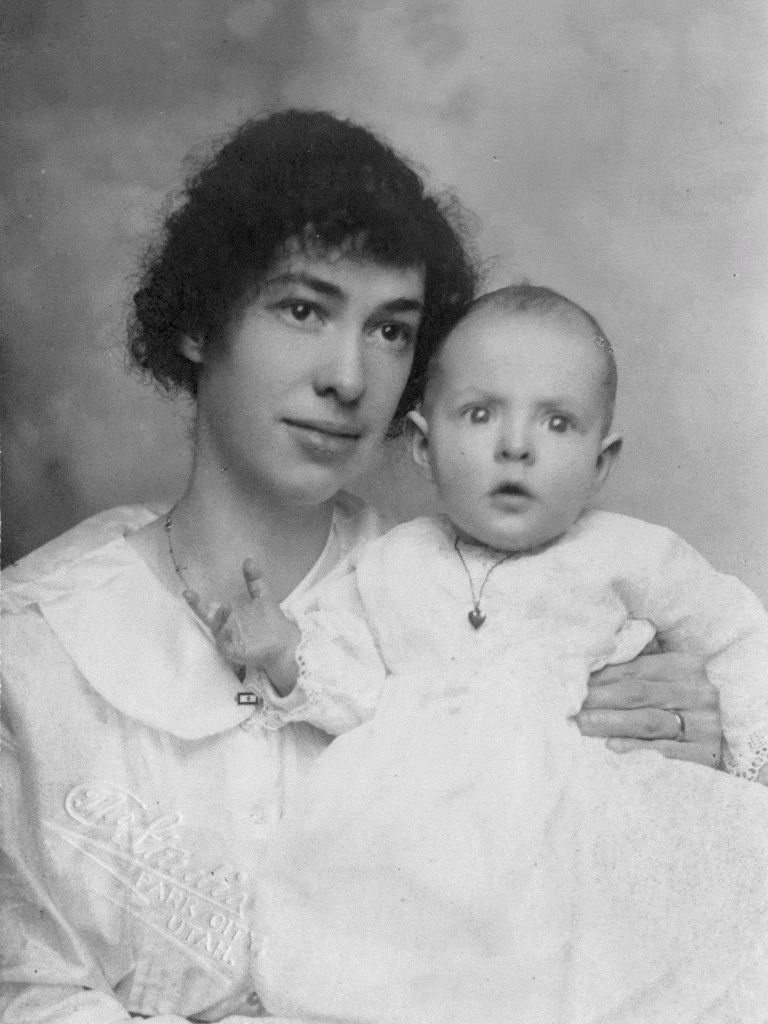“Take good care of yourself and baby and don’t worry about me for I am alright and I am getting all I want to eat and a good place to sleep,” wrote Lawrence Luther Martin to his wife, Edith, from Siberia on May 5, 1919, seven months into his eight month deployment.
Lawrence and Edith, both Park City natives, had been married not quite two years. Edith had given birth to their daughter, Florence, in June 1918 while Martin was training at Camp Fremont in California.

Credit: Park City Historical Society and Museum, Mary Martin Vincent Collection
Martin was fighting in World War I, braving the elements and bitterly cold temperatures at his base in Vladivostok, Siberia. He was in Company K of the 31st infantry, part of the American Expeditionary Force. The AEF was tasked with assisting anti-Communist White Russian forces against the Bolsheviks in the Russian Civil War, which had started with the October Revolution in 1917. Upon arriving in Vladivostok on September 30, 1918, Martin wrote in his diary, “The Russian people were sure glad to see the American soldiers.”
Although Martin and the rest of his infantry never saw combat, they had a significant role in the war. The men of the 31st guarded the Trans-Siberian Railway, ensuring the Bolsheviks would not have access to supplies. In a diary entry dated November 1918, Martin recalled having to guard cars carrying beef from his camp to a nearby town. While on duty, he “damned near froze.” Supply cars were not all Martin guarded, however. Many of his diary entries consisted of notes about guarding German prisoners at a nearby camp. “I had them onloading [sic] flour and hay and groceries of all kinds,” Martin wrote.
The Siberian front was known for having some of the harshest conditions, both in terms of weather and lack of supplies. “This is the damnest [sic] place I ever seen for sure,” Martin described in his diary; “can’t get any water to wash with without running all over the country.” He did not tell Edith about the severity of Siberian conditions in their correspondence, but he did write time and again of how much he missed her and their daughter. “Say dear,” he wrote to his wife, “I sure do miss you and baby. I had better get home pretty soon or the baby will not know me.”
After eight months, Lawrence Martin departed Vladivostok, Siberia on June 1, 1919. After traveling for 45 days through Japan, Hong Kong, the Philippines and Hawaii, he finally arrived in Park City and reunited with Edith, Florence, and the rest of his family at the end of July. Martin went on to work in the Park City mines. He and Edith had another daughter, Mary, in 1928. He passed away in 1979 at the age of 90 years old.

Credit: Park City Historical Society and Museum, Mary Martin Vincent Collection